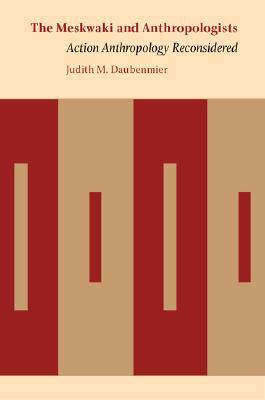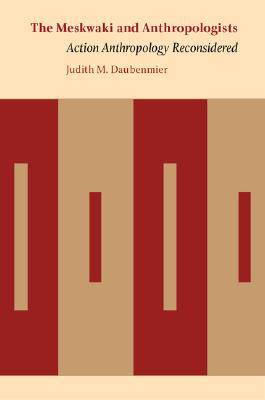
En raison d'une grêve chez bpost, votre commande pourrait être retardée. Vous avez besoin d’un livre rapidement ? Nos magasins vous accueillent à bras ouverts !
- Retrait gratuit dans votre magasin Club
- 7.000.000 titres dans notre catalogue
- Payer en toute sécurité
- Toujours un magasin près de chez vous
En raison de la grêve chez bpost, votre commande pourrait être retardée. Vous avez besoin d’un livre rapidement ? Nos magasins vous accueillent à bras ouverts !
- Retrait gratuit dans votre magasin Club
- 7.000.0000 titres dans notre catalogue
- Payer en toute sécurité
- Toujours un magasin près de chez vous
99,45 €
+ 198 points
Description
The Meskwaki and Anthropologists illuminates how the University of Chicago's innovative Action Anthropology program of ethnographic fieldwork affected the Meskwaki Indians of Iowa. From 1948 to 1958, the Meskwaki community near Tama, Iowa, became effectively a testing ground for a new method of practicing anthropology proposed by anthropologists and graduate students at the University of Chicago in response to pressure from the Meskwaki. Action Anthropology, as the program was called, attempted to more evenly distribute the benefits of anthropology by way of anthropologists helping the Native communities they studied.
The legacy of Action Anthropology has received limited attention, but even less is known about how the Meskwakis participated in creating it and shaping the way it functioned. Drawing on interviews and extensive archival records, Judith M. Daubenmier tells the story from the viewpoint of the Meskwaki themselves. The Meskwaki alternatively cooperated with, befriended, ignored, prodded, and collided with their scholarly visitors in trying to get them to understand that the values of reciprocity within Meskwaki culture required people to give something if they expected to get something. Daubenmier sheds light on the economic and political impact of the program on the community and how some Meskwaki manipulated the anthropologists and students through their own expectations of reciprocity and gender roles. Giving weight to the opinions, actions, and motivations of the Meskwaki, Daubenmier assesses more fully and appropriately the impact of Action Anthropology on the Meskwaki settlement and explores its legacy outside the settlement's confines. In so doing, she also encourages further consideration of the ongoing relationships between scholars and Indigenous peoples today.
The legacy of Action Anthropology has received limited attention, but even less is known about how the Meskwakis participated in creating it and shaping the way it functioned. Drawing on interviews and extensive archival records, Judith M. Daubenmier tells the story from the viewpoint of the Meskwaki themselves. The Meskwaki alternatively cooperated with, befriended, ignored, prodded, and collided with their scholarly visitors in trying to get them to understand that the values of reciprocity within Meskwaki culture required people to give something if they expected to get something. Daubenmier sheds light on the economic and political impact of the program on the community and how some Meskwaki manipulated the anthropologists and students through their own expectations of reciprocity and gender roles. Giving weight to the opinions, actions, and motivations of the Meskwaki, Daubenmier assesses more fully and appropriately the impact of Action Anthropology on the Meskwaki settlement and explores its legacy outside the settlement's confines. In so doing, she also encourages further consideration of the ongoing relationships between scholars and Indigenous peoples today.
Spécifications
Parties prenantes
- Auteur(s) :
- Editeur:
Contenu
- Nombre de pages :
- 432
- Langue:
- Anglais
- Collection :
Caractéristiques
- EAN:
- 9780803217324
- Date de parution :
- 01-10-08
- Format:
- Livre relié
- Format numérique:
- Genaaid
- Dimensions :
- 152 mm x 229 mm
- Poids :
- 771 g

Les avis
Nous publions uniquement les avis qui respectent les conditions requises. Consultez nos conditions pour les avis.






